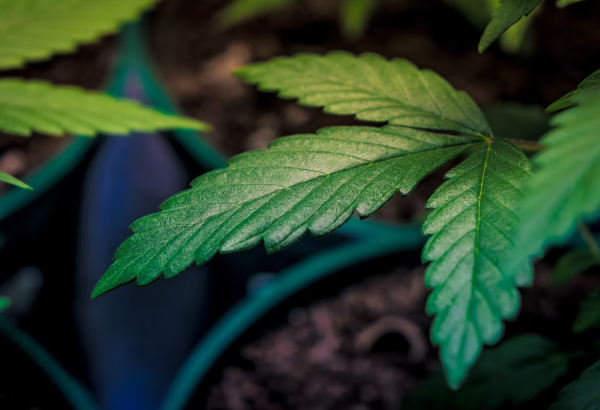The passage of Proposition 207 established that those over the age of 21 in Arizona can legally possess up to an ounce of marijuana and grow up to six plants, but it does not change the fact that smoking marijuana in public places, as well as driving, remains illegal.
Recreational marijuana is officially legal in Arizona, thanks to the signatures of Gov. Doug Ducey and other officials. And as such, it is costly and sometimes even time-consuming to obtain cannabis-derived products.
As a result of the benefits and adaptability of cultivation, cannabis cultivation at home has become a growing trend.

If you intend to do so, you can obtain the seeds by Buying Seeds Online or visiting your local store. Purchasing cannabis seeds online is the most simple and convenient method.
You can easily decide by comparing varieties and prices on various websites.
However, it can be difficult to navigate between all of the more or less serious sites that occasionally offer very appealing deals.
If you’re unsure which seed bank to go with, you can now check out this linked Herbies article to get the best cannabis seeds in Arizona or the United States.
If you have a nearby seed store and still have a few questions before deciding, the specialty store is the way to go.
What exactly is the law about?
The now-certified Proposition 207 allows Arizonans aged 21 and up to possess one ounce of cannabis and grow up to six plants. Still, it does not change that smoking cannabis in public places and driving under the influence remains illegal.
According to the Arizona Department of Public Safety, the legal limit for driving while high on marijuana or drunk is the slightest degree.
Suppose a police officer suspects a driver is under the influence of any drug, including marijuana. In that case, the driver will be subjected to the standard field sobriety test administered by a drug recognition expert (DRE).
DRE experts receive extensive training to determine drug impairment and drug category.
Will Marijuana possession charges be dropped?
After voters approved Proposition 207 more than two years ago, which legalized recreational marijuana, the Maricopa County District Attorney immediately dismissed all pending marijuana possession charges.
But you need to be cautious if you are an immigrant in the process of legalizing your immigration status!
Can I use recreational marijuana in Arizona as an immigrant?
Proposition 207, which legalized recreational marijuana, was approved by voters. As a result, the Maricopa County Attorney’s Office (MCAO) has indicated that it will dismiss all pending and unfiled marijuana possession charges and any associated paraphernalia charges.
The prosecutor’s office stated that if those charges constitute the entirety of the charges in the case, the entire case will be dismissed. If there are other felony charges, the case will be continued, but the MCAO will file motions to dismiss the Proposition 207 charges.
MCAO will include all cases pending in Early Disposition Court, those currently in diversion or awaiting trial, and those scheduled for sentencing or parole violation hearings.
MCAO will give cases with court dates and those in custody priority. When all charges are covered by Proposition 207, the office will also file motions to dismiss detainer cases.
Immigrants who have a legal residence card or other types of immigration benefit may lose their protection if they commit serious crimes such as espionage, child abuse, genocide, torture, or human trafficking.
Other less serious crimes for a US citizen can be serious for a legal resident or immigrant processing their legal stay, such as failing to register as a sex offender or violating weapons laws.
Drug charges are treated much harsher in federal immigration courts than in other courts. Even legal residents can be deported if convicted of a controlled substance violation.
Furthermore, legal residents who are addicted to drugs or have previously abused drugs in the United States may face deportation.
However, the most perplexing category of deportation crimes is “moral turpitude,” a legal concept in the United States and some other countries that refers to “conduct that is considered contrary to community standards of justice, honesty, and good morality.”
The law states that lawful permanent residents can be deported if they commit a moral turpitude-related crime within five to ten years of receiving their green card or if they commit multiple moral turpitude-related crimes.
Lawyer Ezequiel Hernández explained that while recreational marijuana use is legal in Arizona because it is not a federal law, immigrants who are not citizens risk losing their immigration status.
“These state marijuana laws, obviously at the state level, can give permission for the use and transportation of this type of drug, but at the federal level and with immigration implications, it is still not legal to transport, consume, or sell marijuana even for recreation,” Univision News reported. “So if it has a negative effect, that is why people who are in the process or who are thinking about dealing in the future must be cautious with this type of crime, this type of use.”
Legal Aspects you should know if you are a Cannabis user
Arizona is not the only state that legalizes cannabis. Still, two-thirds of Americans support cannabis legalization. The accelerating rate at which states legalize it, as more and more states open their doors to it and its use for recreational and medical purposes, is another sign of its popularity. As a result, we will explain some legal aspects that you should know if you are a user below.
1. The Industry’s jargon
To understand the legal ramifications in states where cannabis use is legal, you should become familiar with some jargon that will help you judge things from the right perspective and thus understand the legal consequences of using products like cannabis. Keep in mind that these may differ between states.
You’ve probably heard about cannabis’s recreational and medicinal uses and how they influence its legal status. These terms will be defined further below.
2. Recreational Use of Cannabis
Marijuana use for recreational purposes has sparked numerous controversies and has been at the center of any debate over its legalization.
However, in the United States, 11 states and the District of Columbia have legalized recreational cannabis possession and use to varying degrees.

Still, this does not give users the right to make their own recreational rules with cannabis, as these rules define its controlled use.
Adults over the age of 21 may keep a small amount of cannabis indoors or on their person, smoke in public occasionally, and grow some plants at home.
3. Medicinal Use of Cannabis
The legalization of medical marijuana in 33 states has significantly boosted the trend, as some of them are considering legalization for recreational cannabis use.
These states have medical cannabis programs, but some only cover a limited number of medical conditions.
Some of these states have yet to apply the legal net to cannabis products, allowing for the limited use of CBD, a cannabis compound known as cannabidiol that is free of any psychoactive strains but rich in medicinal benefits.
CBD effectively treats epilepsy and other types of anxiety symptoms; it also works to relieve chronic pain and is frequently used in cancer patients.
4. Illegal Cannabis Use
This is self-explanatory, and it can refer to any cannabis in any form, regardless of its intended use.
5. Decriminalized Cannabis
Some states in the country consider recreational cannabis a decriminalized product, which means that even if the product is not legal, possessing it will not land you in jail.
Possession of even an ounce or less of marijuana may result in a fine and citation but no criminal charges.
After hearing everything, how did you feel about Arizona’s cannabis law? Are you for or against it? And why not share your thoughts in the comment section below?





